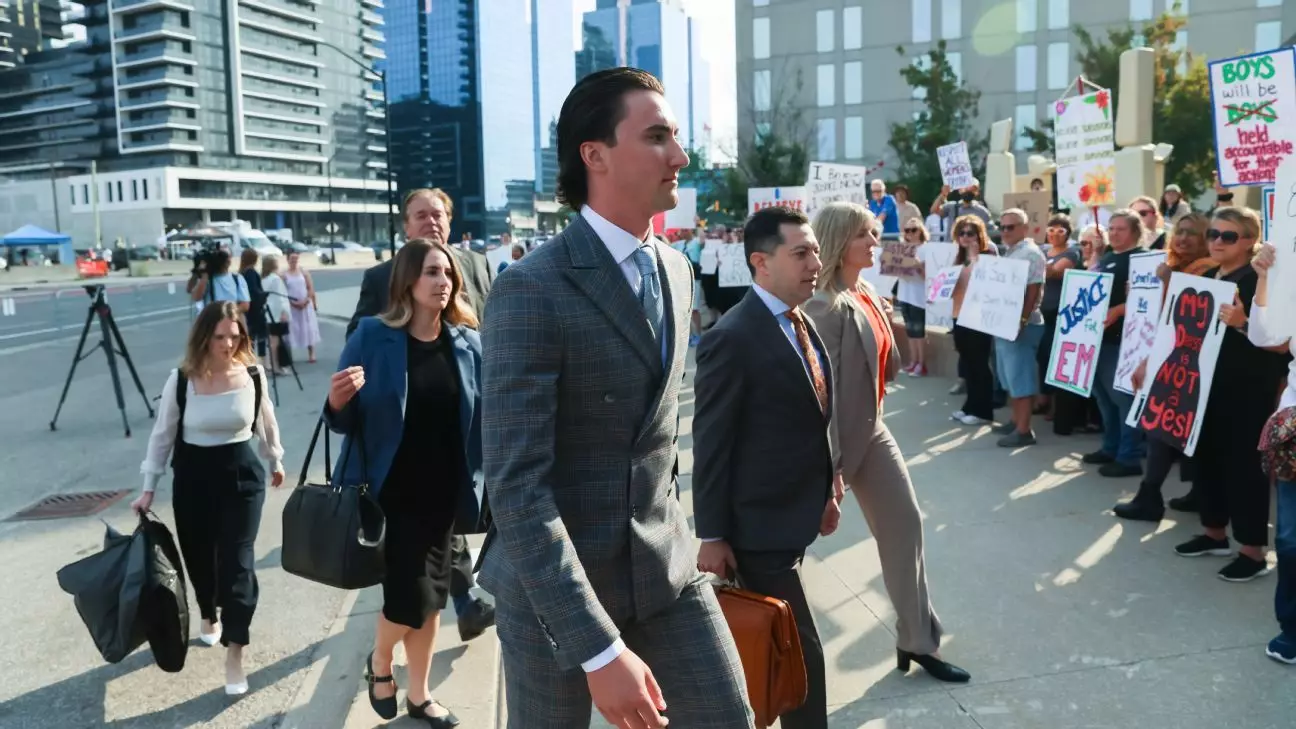In an era saturated with instant news and social media judgments, the recent acquittal of five former junior hockey players underscores the paramount importance of maintaining faith in judicial processes. The legal system’s commitment to impartiality and thorough investigation ensures that allegations, no matter how damaging, are examined carefully before convictions are made or dismissed. When Justice Maria Carroccia found the complainant’s testimony unreliable, she exemplified a crucial principle: everyone is entitled to a fair hearing, and accusations alone should not suffice to condemn someone publicly. This case reminds us that true justice often requires patience, rigorous analysis, and acknowledgment of human fallibility.
The Complexity of Credibility and the Limits of Testimony
One challenging aspect of this case was the judge’s critique of the complainant’s credibility. Her willingness to attribute inconsistencies to intoxication or to shift blame highlights the difficulty courts face when discerning truth from complex human memory and perception. It is tempting to rush to judgment when allegations surface, especially involving public figures or athletes. Yet, the court’s nuanced approach demonstrates that determining credibility involves examining the consistency, reliability, and context of testimonies. The decision underscores that not all evidence that appears impactful on the surface withstands scrutiny, emphasizing the vital role of the legal system in safeguarding against wrongful accusations and convictions.
The societal and Institutional Reactions: Balancing Advocacy and Justice
The aftermath of the ruling exposed a stark divide: the defense viewed the verdict as a victorious vindication of innocence, while the complainant’s advocate described it as devastating. Such divergent perspectives reflect the broader societal tension between protecting the rights of the accused and supporting victims. The NHL’s response, insisting on player ineligibility during review, reveals how institutions prioritize caution in high-profile cases, sometimes at the expense of individual rights. Conversely, the NHL Players’ Association’s stance advocates for reconciling legality with fairness, asserting the players deserve opportunities to resume their careers. These reactions highlight the delicate balance between safeguarding due process and addressing public concerns about misconduct, especially within powerful sports industries.
Lessons for the Future: Upholding Justice in the Court of Public Opinion
This case serves as a reminder that justice must transcend quick assumptions and media narratives. The societal tendency to form judgments based on partial information can tarnish reputations irreversibly, regardless of legal outcomes. It urges a reevaluation of how institutions and society handle sensitive allegations—prioritizing thorough investigations, respecting legal procedures, and resisting the pressure to make hasty conclusions. Recognizing the profound implications for individuals involved, we must uphold the value of the judicial system as the secure framework within which truth and fairness are determined, rather than allow the court of public opinion to overshadow the rule of law.


Leave a Reply